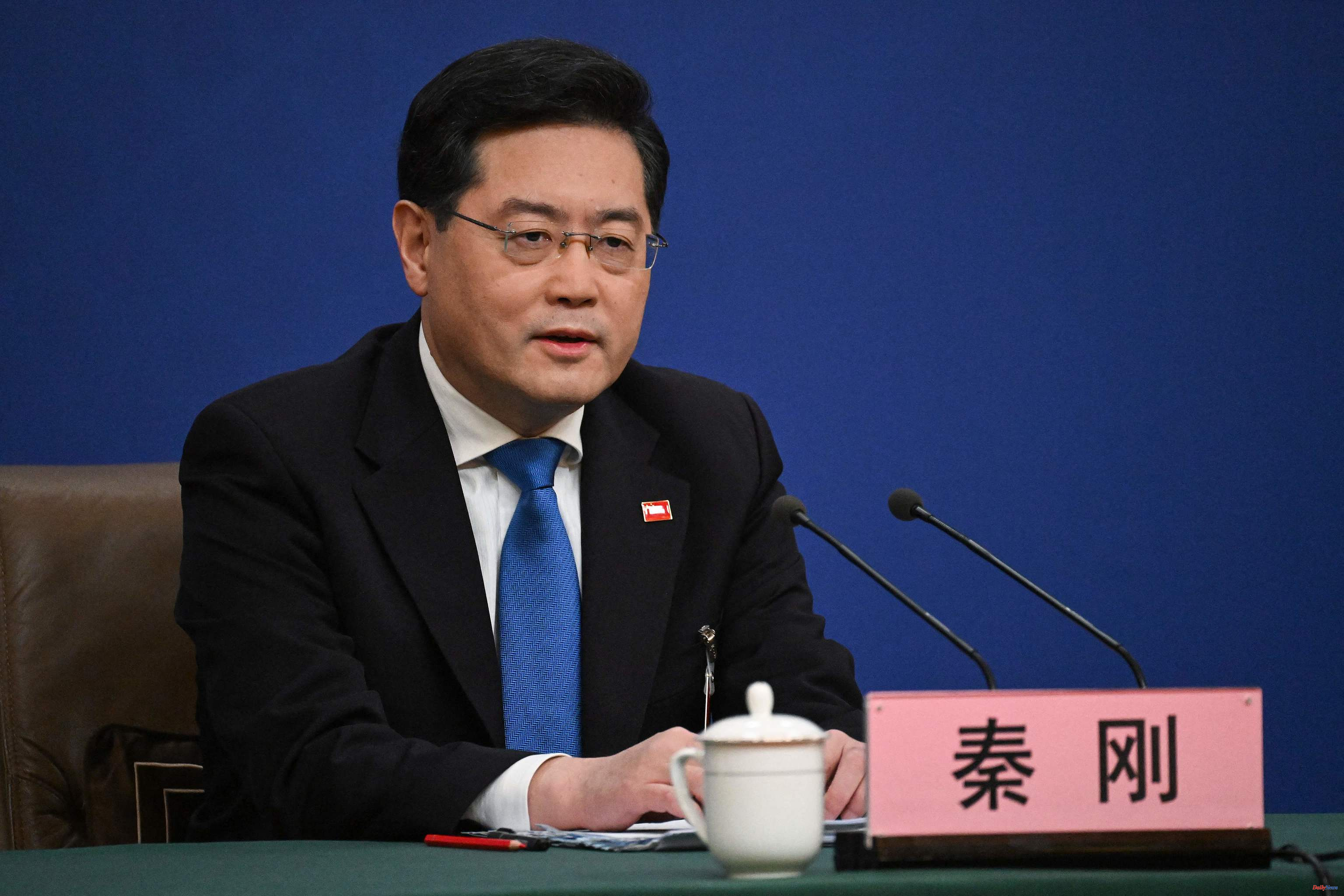In China, the press conferences in which questions were asked to a gigantic television screen have ended. This has been the case for three long years, with politicians isolated in their bubble and journalists having to quarantine in a hotel and several PCR tests to enter a room where the person who should be in front of the microphone was not there. These last two requirements are still in force, but at least the protagonist of the appearances already shows his face.
In the most politically agitated week in Beijing, with the annual meeting of the Chinese Parliament, this Tuesday the agenda was marked by the annual press conference held by the Foreign Minister to review the position of the Asian giant on foreign policy. In a particularly turbulent international context, with many open fronts with the United States and the ever-present backdrop of the Russian invasion of Ukraine, Minister Qin Gang (56 years old), former Chinese ambassador to Washington, was making his debut, whom President Xi Jinping brought back home at the beginning of the year to, among other things, seek a priori a thaw in the cracked relations with the Biden administration.
But if Qin's press conference has surprised anything, it has been the harshness used to address the US, which he has blamed for pushing bilateral relations to the limit. "If the US does not step on the brakes and continues to accelerate down the wrong path, no security measures can prevent derailment and there will surely be conflict and confrontation," Qin warned.
The Chinese minister wanted to recall the recent diplomatic incident over the alleged Chinese spy balloon shot down off the coast of South Carolina. "It was an accident caused by force majeure, the facts and nature of which were clear. However, the US side violated the spirit of international law by overreacting and abusing force, creating a diplomatic crisis that could have been avoided." assured.
"The US perception of China is seriously distorted, treating China as the most important opponent and the biggest geopolitical challenge. The US side claims to compete with China but not seek conflict. Instead, that so-called competition is actually contention and total suppression, a game where you die and I live, rather than fair or rules-based competition," Qin continued.
From this first major appearance of the veteran diplomat, in addition to charging against his greatest rival, other outstanding points can be drawn: Beijing presents itself as the defender of world peace and multilateralism, winks several times at developing countries and defends its solid friendship with Russia. "The more turbulent the world becomes, the firmer relations between Russia and China should advance," the minister said.
"Our (Beijing-Moscow) relations, characterized by strategic trust and good neighborliness, are not a threat to any country and are positive for global stability," said Qin, who wanted to point out that Xi Jinping and Vladimir Putin maintain a close relationship. regular contact and that their strategic partnership will continue to strengthen.
"Some countries are used to looking at China-Russia relations through the filter of the Cold War alliance and see nothing but their own reflection," he continued. "When China and Russia join hands, the multipolarization of the world and the democratization of international relations will gain momentum, and global strategic balance and stability will be guaranteed."
Regarding the Russian invasion of Ukraine, which the minister, following Beijing's usual narrative, qualifies as a "crisis", Qin denied that his country was providing weapons to the Russian army - as Washington has been pointing out for weeks - and insinuated that "a invisible hand" appears to be backing a "protracted crisis" in Ukraine.
Last month, the Chinese government launched a peace plan calling for a ceasefire and for the sovereignty of all countries to be respected, but the latest dart (that of the "invisible hand") launched today by the Foreign Minister is aimed at to the West, especially NATO and the US, which Beijing has repeatedly accused of fueling the conflict in Ukraine.
The new Chinese foreign minister arrived at the press conference on Tuesday after his first major international event attending the G-20 ministerial meeting in New Delhi, where he took the opportunity to binge bilateral meetings on the sidelines of the summit. with many of their counterparts, including those from Russia, India, Saudi Arabia, Australia, Spain and Germany. On that trip, Qin wanted to promote China as the main supporter of developing countries and the only power that really fights against protectionism and bloc politics. Ideas that he has repeated this Tuesday.
"Major countries must figure out what they want with each other: build exclusive blocs or foster an open and sincere friendship. In the decade of the new era, President Xi Jinping has launched a series of major global security and development initiatives that uphold fairness. and justice, and oppose hegemony and self-interest," he said. "Developing nations account for 80% of the world's population and 70% of world economic growth. Developing nations must be allowed greater representation and a stronger voice in international affairs."
As usual, the Chinese Foreign Minister's press conference could not miss questions about Taiwan, the self-governing island that Beijing considers a rebel province. Qin, knowing that this question was going to fall to him, carried a small copy of the Constitution of China that he took out and read a fragment: "Taiwan is part of the sacred territory of the People's Republic of China. It is the sacred duty of all the people Chinese, including our Chinese compatriots in Taiwan, achieve the great reunification of the motherland."
He also sent a final message to Washington, the island's main arms supplier: "The Chinese people have every right to ask why the US talks about respecting Ukraine's sovereignty and territorial integrity but disrespects China. Why is the US asking China not to provide weapons to Russia while continuing to sell weapons to Taiwan?"
According to the criteria of The Trust Project












